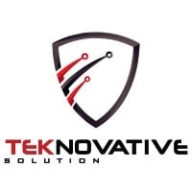

Real Estate CRM and Pebble Impact Nonprofit Software are competitors in the software industry, with each offering tailored to their respective fields. Real Estate CRM leads in property-focused features, whereas Pebble Impact provides unique features for nonprofits.
Features: Real Estate CRM includes lead tracking, property management, and automated communication tools, ideal for real estate professionals. Pebble Impact Nonprofit Software focuses on donor management, event planning, and grant tracking, addressing nonprofit needs effectively.
Ease of Deployment and Customer Service: Real Estate CRM seamlessly integrates with existing tools used by real estate professionals, featuring easy deployment. Pebble Impact Nonprofit Software, however, emphasizes extensive training and dedicated support that aligns with nonprofit requirements, offering a personalized service approach.
Pricing and ROI: Real Estate CRM's pricing matches its specialized features for property management, promising ROI through operational efficiency. Pebble Impact Nonprofit Software may present a higher initial cost but is designed to deliver substantial returns by boosting nonprofit outreach and management effectiveness, justifying its price for organizations aiming to enhance their impact.
Pebble Impact Nonprofit Software is tailored to enhance nonprofit operations, offering crucial tools to streamline processes and maximize outcomes for mission-driven efforts.
Pebble Impact Nonprofit Software delivers strategic solutions for nonprofits, emphasizing efficiency and effectiveness. Users benefit from its robust capabilities designed to simplify management and empower teams. Its intuitive approach to handling nonprofit tasks makes it an essential tool for driving meaningful change and achieving impactful results.
What are the features of Pebble Impact Nonprofit Software?Pebble Impact Nonprofit Software finds widespread use in sectors like health, education, and social services. Health-focused nonprofits utilize it for managing health campaigns and outreach, while educational institutions implement it for coordinating programs and engaging alumni support. Social services rely on its robust tools to drive community-focused initiatives, ensuring optimal resource allocation.
Real Estate CRM is a comprehensive tool designed for real estate professionals to manage client interactions, automate the sales process, and enhance customer relationships, improving operational efficiency.
Built with real estate professionals in mind, Real Estate CRM centralizes all client data and communication channels. This optimization allows for seamless tracking of customer journeys from initial contact to closing a deal. The CRM integrates customizable workflows, providing flexibility for business-specific processes and automating repetitive tasks. Real Estate CRM enables team collaboration with shared calendars and task management, boosting productivity. Continuous updates and support ensure the system evolves with industry trends and user needs. Automation capabilities reduce manual tasks, freeing up time for client engagement and strategy development. Real Estate CRM remains a game-changer for any property-related business seeking growth and customer satisfaction.
What are the key features of Real Estate CRM?Implementation of Real Estate CRM across industries allows businesses to adapt the system to specific sector needs. From residential to commercial properties, the CRM facilitates tailored processes that cater to distinct market demands. Integration within industry-specific environments maximizes resource utilization and operational output.
We monitor all CRM reviews to prevent fraudulent reviews and keep review quality high. We do not post reviews by company employees or direct competitors. We validate each review for authenticity via cross-reference with LinkedIn, and personal follow-up with the reviewer when necessary.